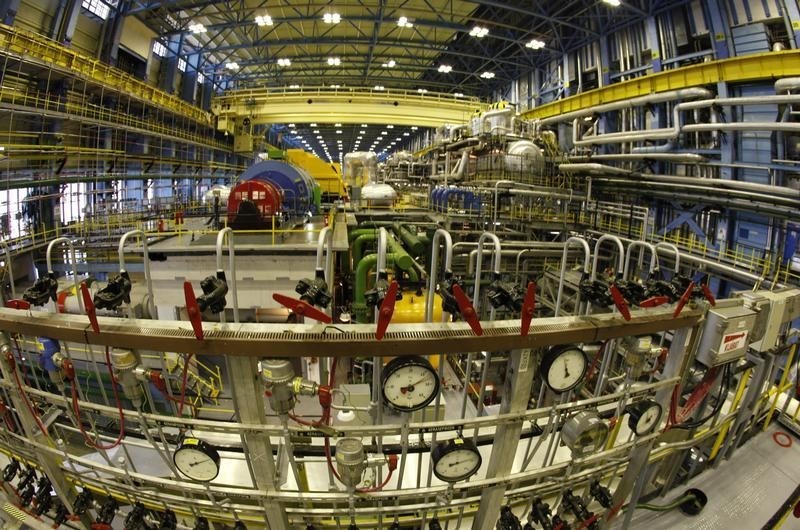WASHINGTON (Reuters) - A U.S. Senate committee easily passed a bill on Wednesday to enable the nuclear regulator to license advanced nuclear reactors that backers say are safer than conventional plants and can help deal with a growing waste problem.
The Nuclear Energy Innovation and Modernization Act requires the Nuclear Regulatory Commission to develop a regulatory framework to enable the licensing of advanced nuclear reactors that could come into development in 10 or 15 years.
The bill passed 18-3 in the Environment and Public Works Committee.
The committee's chairman, Republican Senator James Inhofe, said the bill is "critical for the revitalization and improvement of our nation's nuclear energy industry."
The bill has brought together some Republicans eager to prevent the United States from falling behind China and Russia in nuclear innovation and Democrats who want to foster technologies that do not emit gases blamed for climate change. But the legislation faces a cloudy future.
The nuclear industry faces competition from cheap natural gas prices and the growing wind and solar power industries. It was uncertain whether the full Senate would debate the bill or if the measure would be absorbed into broader energy legislation.
Democratic Senator Sheldon Whitehouse said the bill would help the United States keep its lead in innovation while finding possible solutions to the waste now kept in pools and in casks at conventional nuclear plant sites.
"If we can get there, we will have done this country and the world a vital public service," Whitehouse said of the potential for the advanced reactors to reduce the waste problem.
A fellow Democrat, Senator Kamala Harris of California - one of several lawmakers who want to see the country find comprehensive, permanent solutions to existing nuclear waste from conventional nuclear plants before moving ahead with new reactors - voted against the bill.
"Safely disposing of any radioactive material is a key priority of mine to ensure that we leave our environment pristine and unharmed for future generations," Harris said, adding that she is willing to help improve the legislation.
